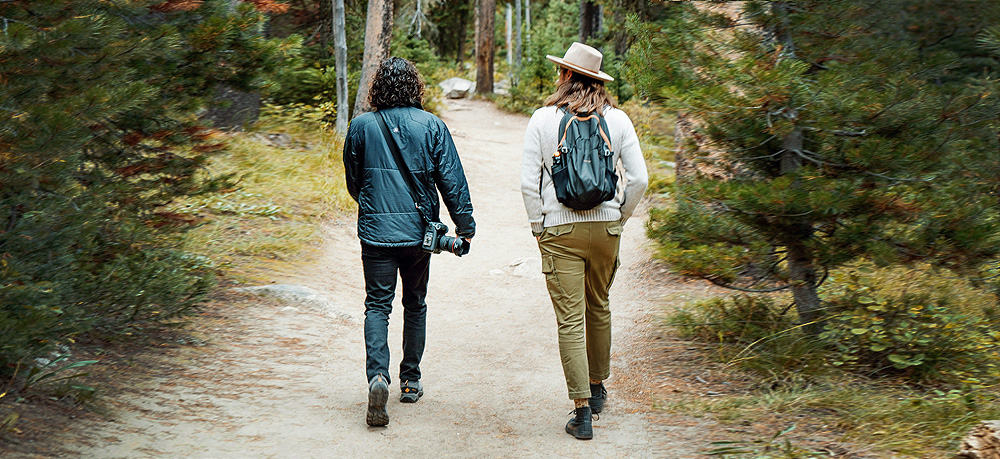Beyond Four Walls: How Outdoor Therapy Can Revitalise Your Mental Health
Outdoor therapy (also referred to as nature therapy or eco-therapy) is an emerging format of therapy that feels great, is entirely adaptable, and uses the natural atmosphere around you to rejuvenate all aspects of who you are, mentally and emotionally.
Along with offering your preferred type of outdoor activity, outdoor therapy can promote emotional healing, foster personal development, and improve overall quality of life.
As many people turn to alternatives for treating anxiety, stressors, and other mental health issues, outdoor therapy is sure to be a great draw.
The Concept of Outdoor Therapy
Outdoor therapy combines aspects of psychotherapy and nature. Therapeutic conversations can occur while participating in various outdoor activities such as hiking, planting, gardening, and breathing practices while being mindful of nature.
The basis of outdoor therapy is that being immersed in nature greatly affects the mind to calm down, while being outside in a natural environment impacts issues such as anxiety or depression.
The sensations of being in the outdoors, including the sound of fluttering leaves, the sights of the colourful blossoms, and the sensations – the fresh air hitting your face could result in your body responding emotionally spontaneously, often forgotten from traditional therapy settings.
When one becomes engaged with their surroundings, it can offer a new level of self-awareness that can allow for deeper emotional/expression not yet explored, and outdoor therapy becomes an exciting new way you could ultimately choose to experience your problems and promote healing.
Outdoor Therapy’s Historical Background
The origins of this type of therapy can be credited to the turn of the 20th century, when researchers began to seriously evaluate the importance of nature on psychology and health. Early theorists, such as Carl Jung, quickly established a basis for nature therapy when lecturing on the value of nature for psychological health.
Jung acknowledged that nature serves a mirroring function which supports a deeper understanding of self and can allow children and adults the ability to recognise their feelings and thoughts in and safe and facilitating environment.
Fast forward to today, some key concepts were enhanced and reflected in a variety of nature-based therapeutic strategies.
Jung’s support of nature reflected the founding principles in wilderness therapy that emerged in the mid-20th century.
Often these organisations were based on the use of the participants managing wilderness living experiences together as a team to build relationships, responsible independence, responsible risk-taking, and “saving-the-world” experiences, and nature experiences, all in support of the individual’s well-being and mental health recovery in nature.
Modern Applications
Currently, outdoor therapy is used in many venues such as schools, rehabilitation facilities, and private practices. In terms of programming, there are many therapists creating programs with physical activities, mindful awareness practices, and group experiences in nature.
With the variety of mental health issues humans experience, from stress management to trauma recovery, outdoor therapy can encompass a range of issues.
For example, in a school setting, outdoor therapy can help develop a student’s emotional resilience and social well-being after an impactful moment, teaching the student coping strategies they can use while navigating not only their classroom’s challenges but also in their life outside of school. In a rehabilitation facility.
The nature-based format helps build a sense of community and connectedness with other participants while having a shared healing experience.
There is consistent emerging research demonstrating the physiological benefits of connecting with nature, including decreased levels of cortisol and improved mood, making the outcomes even more powerful when considered in a therapeutic context.
The Benefits of Outdoor Therapy

The advantages of this type of therapy extend beyond mere relaxation. Research has shown that engaging with nature can lead to significant improvements in mental health. Here are some key benefits:
Better Mood and Reduced Anxiety
Studies have shown that time spent outdoors leads to higher serotonin levels, a neurotransmitter that contributes to feelings of well-being and happiness. Natural settings help to reduce stress levels and promote calm in the body, which makes outdoor therapy a powerful intervention for reducing anxiety and depression.
Better Physical Health
Outdoor therapy usually involves physical activity that can also improve the client’s physical health. We know that regular engagement in physical exercise releases endorphins, which can elevate mood and reduce stress.
Additionally, being active in outdoor therapy can help clients maintain a more active lifestyle, which can benefit their mental health even more.
Increased Mindfulness and Connection
Outdoor therapy promotes mindfulness in our clients because the therapist often encourages them to engage with their thoughts, sensations, and the environment while they are engaging in a physical activity.
This level of awareness can help some clients feel more connected to themselves and the world around them, and can help promote a sense of belonging and purpose.
Types of Outdoor Therapy
Outdoor therapy can take many forms, depending on the needs of the individual and the therapeutic goals. Here are some common types:
Adventure Therapy
Adventure therapy is an experiential therapy where people engage in outdoor activities that will stretch their abilities, both physically and mentally. Examples of adventure therapy include activities like rock climbing, kayaking, and wilderness survival skills.
Adventure therapy recognises the natural therapeutic benefits of adventure activity while also allowing participants to develop key life skills such as resilience, teamwork, and problem-solving.
Ecotherapy
Ecotherapy refers to the therapeutic experiences that occur between people and nature. Ecotherapy may involve activities such as gardening, nature walks, or simply being in a park. The component that ecotherapy emphasises is developing a connection with nature, which can improve emotional well-being and mental health.
Nature-Based Mindfulness
Nature-based mindfulness combines traditional mindfulness practices and settings with outdoor environments. Participants engage in various mindful activities that may include guided mindfulness, breathing practices, or yoga in nature.
The aim of nature-based mindfulness would be the awareness and presence that will help them manage their stress and improve their overall mental health.
Who Can Benefit from Outdoor Therapy?

The therapy is beneficial for a variety of people, from children to adults. It can be of great benefit for individuals who feel uneasy in traditional therapy or are more comfortable being active. Here are some examples of individuals who may benefit from outdoor therapy.
Children and adolescents
Children and adolescents have a limitless amount of energy, so in addition to providing a client-free relationship, outdoor therapy is also useful for clients who have trouble sitting in the quiet confines of a therapy room.
It can give these individuals exciting and engaging methods to explore emotions, develop coping strategies, and build self-esteem while physically engaging, being outdoors, and working with the natural world.
Individuals suffering from anxiety and depression
Outdoor therapy can be a welcome break for those suffering from anxiety and depression. The physical activity, nature exposure, and use of mindfulness activities can be a powerful health-providing combination that can positively impact mental and emotional health.
Individuals in recovery
Individuals recovering from substance abuse or the traumas associated with that possession can be able to greatly benefit from this.
Nature offers participants a welcoming, safe space to explore healing, resilience, and forms of support through therapeutic activities and peer participants.
Getting Started
For those interested in exploring outdoor therapy, the first step is to find a qualified therapist or program that specialises in this approach. Many therapists incorporate outdoor elements into their practice, while others may offer dedicated outdoor therapy sessions.
Tips for Finding a Qualified Therapist
When finding a therapist, it is important to find someone with experience regarding outdoor therapy or adventure therapy.
A therapist with psychological or counselling qualifications and outdoor education or wilderness therapy certifications can suggest they are a well-rounded therapist.
Taking Part in Group Programs
Several organisations provide group programs that take place in outdoor therapy contexts. Group outdoor therapy programs can provide participants with a safe and supportive environment where clients engage in therapeutic activities while interacting with others.
Often, group programs are focused on specific issues such as anxiety, depression, or trauma recovery; these are good options to try on your journey of outdoor therapy.
Conclusion
Outdoor and nature-based therapies are an engaging and effective form of mental health and wellness therapy. They take advantage of the healing elements of nature to help individuals gain benefits for their emotional, psychological, and therapeutic needs.
Now more than ever, as the conversation about mental health broadens, outdoor therapy is an emerging opportunity for individuals who are searching for innovative and holistic options.
Opportunities for healing and growth in the outdoor and nature-based therapy space are plentiful, whether it be adventure therapy, ecotherapy, or nature-based mindfulness.
Letting nature partner with us in the therapeutic process may foster experiences that could change lives.
For those facing mental health challenges, Sabino Recovery (in the US) and Sanctuary Therapy Rooms North London (in the UK) are both leading treatment centres offering individualised programs, expert care, and a supportive environment to foster emotional healing and personal growth..


